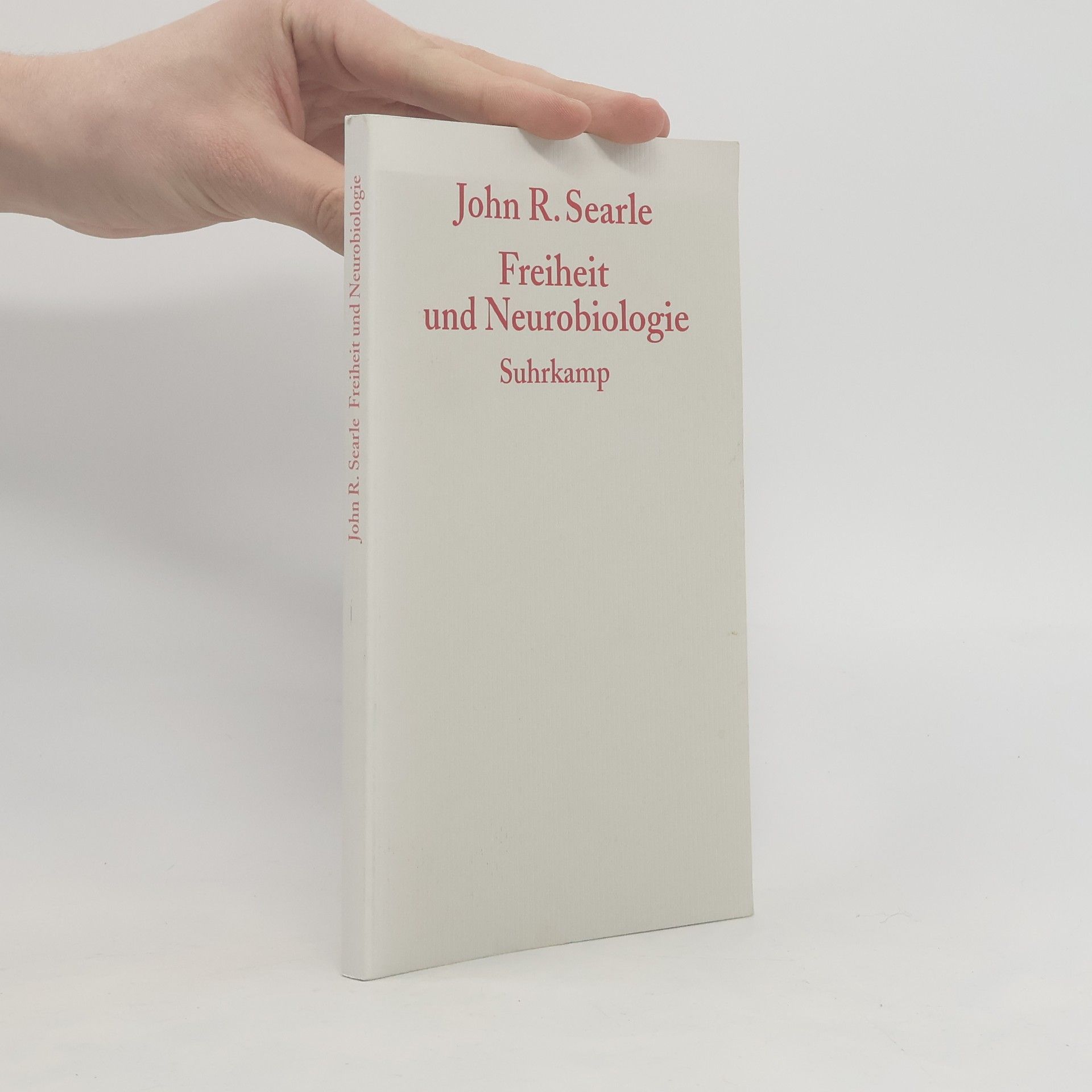Die Debatte zwischen moderner Hirnforschung und Philosophie dreht sich um die Frage des freien Willens im Lichte neurobiologischer Experimente. Im Zentrum steht das traditionelle Menschenbild mit seinen theoretischen, praktischen und politischen Implikationen. Der amerikanische Philosoph John R. Searle hat in zwei Vorlesungen an der Sorbonne die Herausforderungen der Naturwissenschaften aufgegriffen und darauf reagiert. Seine philosophische Antwort auf die Angriffe der Hirnforschung besteht darin, Bedingungen zu formulieren, unter denen wir von Freiheit sprechen können. Freiheit ist kein selbstverständlicher Begriff, sondern Teil einer langen philosophischen Tradition, die bereits Antworten auf viele der vorgebrachten Argumente liefert. Searle betont die Notwendigkeit, zwischen verschiedenen Konzepten von Freiheit und Determinismus zu unterscheiden und deren theoretische Grundannahmen zu hinterfragen, um einen fruchtbaren Dialog zu ermöglichen. Sein Ansatz zielt darauf ab, den menschlichen Geist zu definieren. Entscheidend ist nicht, ob die Freiheit im Menschenbild der Hirnforschung Platz hat, sondern wie der menschliche Geist beschaffen sein muss, damit Freiheit möglich ist.
Columbia Themes in PhilosophySeries
This series delves into the depths of philosophical inquiry, exploring foundational concepts that have shaped our understanding of the world. Each volume offers insightful examinations of diverse philosophical traditions and schools of thought. It is designed for readers seeking intellectual stimulation and a deeper comprehension of human existence and cognition. The collection covers a broad spectrum of topics, from ethics to metaphysics.


Recommended Reading Order
Freedom & Neurobiology
- 128 pages
- 5 hours of reading
"In the second half of the book, Searle applies his theory of social reality to the problem of political power, explaining the role of language in the formation of our political reality. The institutional structures that organize, empower, and regulate our lives - money, property, marriage, government - consist in the assignment and collective acceptance of certain statuses to objects and people. Whether it is the president of the United States, a twenty-dollar bill, or private property, these entities perform functions as determined by their status in our institutional reality. Searle focuses on the political powers that exist within these systems of status functions and the way in which language constitutes them."--BOOK JACKET.